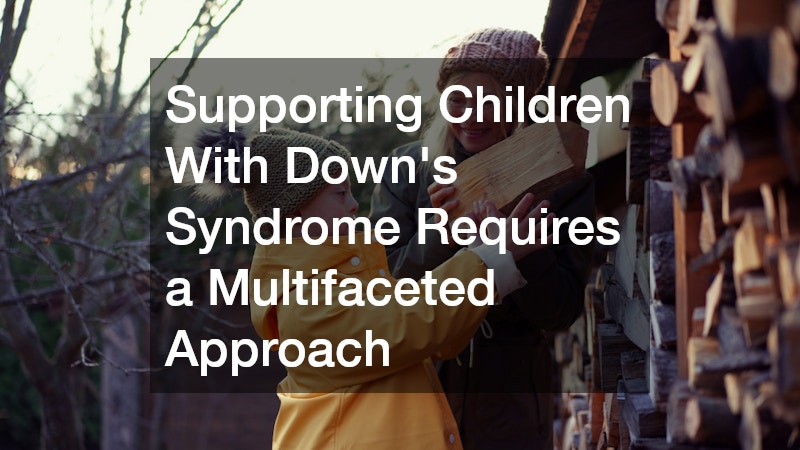Down’s Syndrome is a genetic condition resulting from the presence of an extra 21st chromosome. It is one of the most common chromosomal abnormalities, occurring approximately once in every 700 births worldwide. Understanding Down’s Syndrome is vital for families, educators, and the community to support children with this condition and encourage their full potential and well-being.
What Are the Characteristics and Symptoms of Down’s Syndrome?
Understanding Physical Characteristics
Children with Down’s Syndrome typically exhibit certain facial features such as a flat facial profile, an upward slant to the eyes, small ears, and a protruding tongue. These physical characteristics do not affect their ability to live rich and fulfilling lives.
Growth patterns in children with Down’s Syndrome may differ slightly, often resulting in shorter stature and changes in muscle tone compared to their peers.
Despite these challenges, many children with Down’s Syndrome can learn to manage their conditions effectively with the proper support. Parents and caregivers should remain vigilant for any additional health symptoms and seek professional medical guidance when necessary. Physical therapy and other targeted interventions can help improve movement skills and promote long-term health management.
The variability of physical traits means that each child experiences and expresses these characteristics uniquely. Therefore, striking a balance between awareness and acceptance of these traits is key. Supportive environments that focus on individual strengths can greatly enhance the quality of life for children with Down’s Syndrome.
Cognitive and Developmental Aspects
Children with Down’s Syndrome frequently experience cognitive and developmental challenges, but their ability to learn and grow should not be underestimated. They may take longer to reach developmental milestones such as walking, talking, and socializing, but with appropriate interventions, progress is achievable. Early exposure to learning experiences tailored to their needs can facilitate enhanced cognitive development.
The range of cognitive abilities varies widely among children with Down’s Syndrome. Some children may develop strong academic skills, while others may require more support, highlighting the importance of personalized educational strategies. Parents can encourage cognitive development by engaging children in interactive play, reading, and experiential learning activities.
It is essential that educational and developmental expectations are tailored to each child’s unique abilities. Opportunities for peer interactions and group activities can further aid social and cognitive growth. Support from professionals such as speech and occupational therapists can play a central role in fostering successful developmental trajectories.
Health Concerns and Medical Monitoring
Children with Down’s Syndrome are at an elevated risk for certain health conditions, including congenital heart defects, vision and hearing impairments, and thyroid disorders. Comprehensive health care plans that include regular monitoring and early detection of associated medical issues can significantly improve outcomes. It’s crucial for families to work closely with healthcare professionals to establish individualized medical care plans tailored to their child’s needs.
Regular medical follow-ups and coordination among various healthcare providers ensure that potential issues are identified and addressed swiftly. Advances in medical treatments have significantly improved the life expectancy and quality of life for individuals with Down’s Syndrome. Parents and caregivers need to be advocates for their children’s health by ensuring access to necessary medical evaluations and interventions.
In addition to medical interventions, lifestyle considerations such as balanced nutrition and meaningful physical activity can contribute to better health outcomes. Health education and support for families are also essential components in managing these potential health challenges. Collaborative community resources can provide additional assistance in understanding and managing the specific health needs associated with Down’s Syndrome.
How Can Parents Support a Child with Down’s Syndrome?
Early Intervention Programs
Early intervention programs are instrumental in optimizing developmental outcomes for children with Down’s Syndrome. These programs typically offer services such as physical therapy, occupational therapy, and speech therapy to address developmental delays. Taking advantage of these programs can lead to significant improvements in a child’s communication, social interaction, and motor skills.
Families are encouraged to seek these services soon after a diagnosis is confirmed to establish a supportive developmental framework. Programs are often tailored to meet individual needs and are created in collaboration with families to achieve specific developmental goals. This partnership between professionals and families ensures a cohesive approach to nurturing a child’s growth and development.
Research supports that children who participate in early intervention programs demonstrate better long-term outcomes. Not only do these programs address immediate developmental needs, but they also lay the foundation for lifelong learning. The support provided empowers families and equips children with tools that are critical for their future success and independence.
Educational Strategies and Inclusion
Education plays a pivotal role in supporting children with Down’s Syndrome, and various strategies have been developed to enhance their learning experiences. Inclusive education, which integrates children with special needs into mainstream classrooms, provides opportunities for social and academic growth. Educators are encouraged to employ differentiated instruction and specialized resources to accommodate varied learning styles.
Special education approaches may include individualized education plans (IEPs) that outline specific goals and accommodations for each student. Collaboration among educators, families, and support personnel ensures that educational plans are implemented effectively, leading to better outcomes for children. Inclusive settings also promote empathy and acceptance among peers, benefiting the student body as a whole.
By utilizing assistive technologies and adaptive learning materials, educational experiences can be further enriched. Creating a supportive and understanding academic environment encourages children to reach their potential while fostering important social skills. Educators and parents as advocates can significantly influence the educational success of children with Down’s Syndrome.
Understanding and supporting children with Down’s Syndrome requires a multifaceted approach, combining medical care, educational resources, emotional support, and community involvement. Empowering families with knowledge and resources ensures that children with Down’s Syndrome can thrive within their communities and beyond. By valuing their potential and nurturing their development, we create a more inclusive society that appreciates diversity and champions the success of every individual.
.



